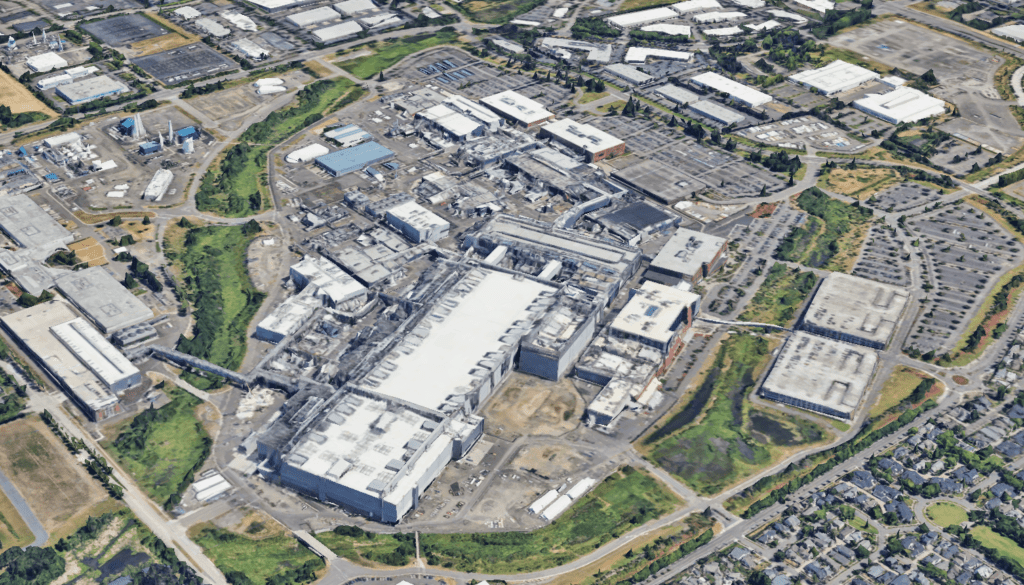This summer, Intel submitted plans to Oregon DEQ for a massive proposed expansion of its two semiconductor manufacturing facilities in Washington County. If approved, this expansion will significantly increase Intel’s chip production capacity, and its ability to develop new technologies. The State of Oregon has committed over $100 million in public funding to incentivize Intel’s new development.
This proposed expansion would also lead to dramatic increases in air pollution at Intel’s Hillsboro and Aloha campuses. Intel’s air quality permit application proposes a 110% increase in greenhouse gas emissions, which would make the two facilities the largest source of GHG emissions in Oregon. The plans also call for sharp increases in particulate matter, carbon monoxide, and nitrogen oxide emissions.
It is critical that environmental advocates and Washington County communities present a strong voice to ensure these air emissions are minimized and that public health is adequately protected at Intel’s facilities. NEDC and our partners at Neighbors for Clean Air have been leading this charge for years. In 2013, a Clean Air Act lawsuit led to an agreement with Intel resulting in new monitoring and testing at the facilities, new health risk assessments, and new public processes for impacted communities—all designed to reduce dangerous air emissions.
Now, NEDC and NCA are leading the charge again, working with impacted neighborhoods and air quality experts to carefully review Intel’s permit applications. Before any new air permit is issued, Intel and DEQ must perform complete and adequate analyses of Intel’s new emissions. This must include accurate modeling to ensure compliance with health-based air quality standards, a careful analysis of the new emissions’ impact on the surrounding communities, and commitments to install the most effective pollution control equipment.
Oregon is allocating huge amounts of public funding to boost the state’s semiconductor industry. As new projects like Intel’s take advantage of these taxpayer-funded financial incentives, NEDC and our partners will be working to make sure that air quality, public health, and climate impacts are not sacrificed for new economic development.


